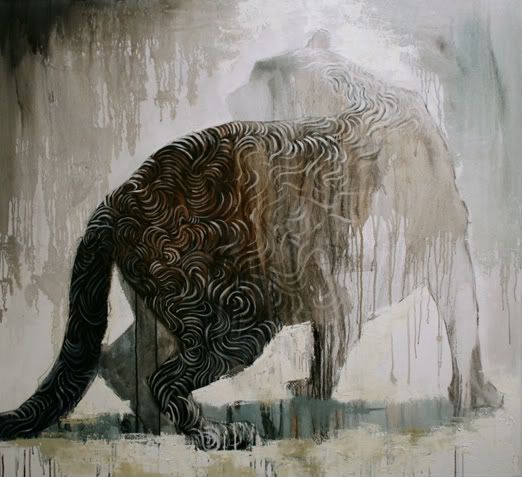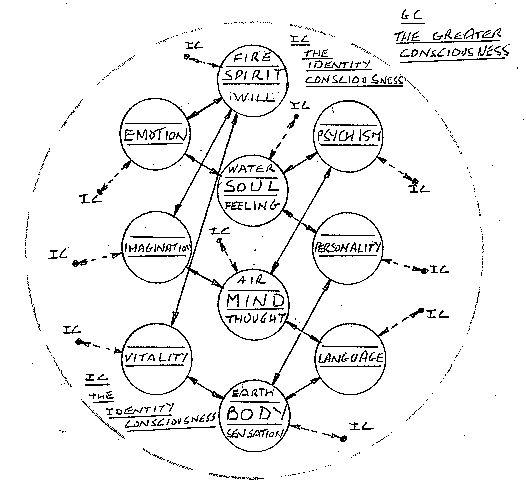
Wan-sung says,
"The moment one particle is brought up,
the whole earth is contained in it.
Who is it that can open the borders and extend the land as alone rider with a single lance,
and so can be the master anywhere and encounter the source in everything?"
If everything is interdependent, then everything is part of the existence of every thing. Using this one quintessential understanding of universal interdependence, it is possible to extend the horizons of consciousness by means of the infinite network of causality. In this way, we are in the midst of the limitless even in the midst of the finite, what determines the depth and breadth of our world is the richness or poverty of our perception.

Once as the Buddha was walking along with a group,
he pointed to the ground and said,
This place is suitable for building a sanctuary."
Shakura, Emperor of Angels,
struck a blade of grass in the ground and declared,
"The building of the sanctuary is done."
The Buddha smiled.
Buddha traveled in the company of all beings. Shakra, the Emperor of Angels, is also called Indra. In the Avatamasaka teaching, the pearl net of Indra in the skies above reflecting the world below represents the infinite network of interdependence phenomena and principles.
Buddha points at the ground and says it is suitable for a sanctuary; this stands for the universal principle, which is everywhere. Indra plants a blade of grass in the ground and declares the sanctuary built; this stands for the concrete manifestation of principle in phenomena. Realizing the perfect correspondence of the abstract and the concrete is the third of four realms of reality in Avatamasaka Buddhism and the third of five ranks in the Ts'ao-Tung school of Ch'an Buddhism.

T'ien-t'ung said in verse:
Infinite spring in the hundred grasses;
Picked up in what comes to hand, it's used familiarly.
The glorious embodiment of virtuous qualities,
Leisurely Buddha leads by the hand into the red dust,
Able to be master in the dust;
A visitor shows up from outside Creation,
Life enough as it is whenever he is,
Not minding if he's not as clever as others.
The infinite spring in the hundred grasses is the universal principle underlying phenomena. When this universal principle is realized, it can be illustrated in anything.
An embodiment of virtuous qualities represents Buddha as embodying abstract truth in concrete manifestations. The practice of enlightenment is actualized in the ordinary world, while the enlightenment of the practitioner is independent of objects.
The Emperor of Angels is the guest from outside of Creation. The idea of being "outside Creation" in this case refers to a total perspective on the whole of being, rather than a limited perspective from an isolated point of view. The sufficiency of his life wherever he is refers to his ability to experience everything as part of everything else; unconcern for his comparative lack of cleverness refers to the actual reality of universal interdependence, which does not need to be artificially constructed to be true.
Classics of Buddhism and Zen, Volume Three, the collected translations of Thomas Cleary
Programming by DPC

